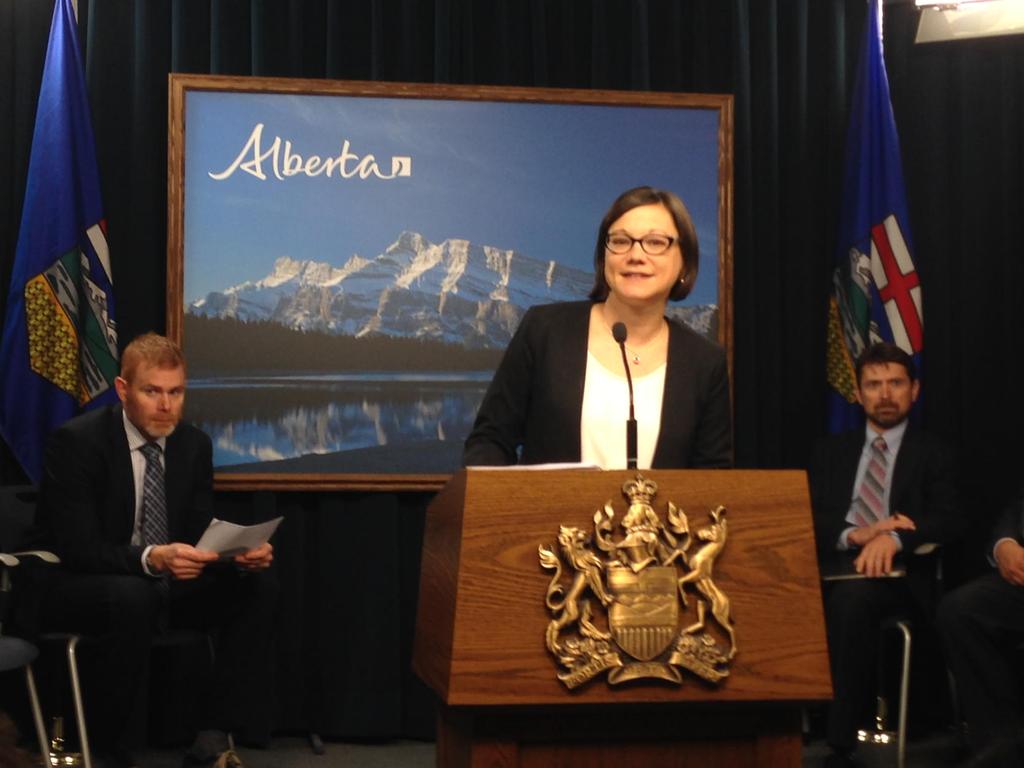CALGARY — Alberta’s environment minister told an oil and gas conference Monday that she hopes the government’s broad-based carbon tax won’t have to be collected forever.

Shannon Phillips used an 18-minute speech to the Conference Board of Canada’s oil and gas summit to reassure industry officials that the Alberta NDP government is aware of the challenges being faced by the energy sector as a result of nosediving oil prices.
“We acknowledge as a government the pain of low oil prices and the effects it has had on Calgary and all communities that are dependent on resource extraction in this province,” said Phillips.
“As a government we have a choice in how we respond. We don’t control the price of oil. What we do control is how we treat one another. We also choose a different, more hopeful path than might be offered by others.”
READ MORE: Oil slump enters ‘second round’ as pinch spreads far beyond oil patch
Phillips outlined for the crowd the Alberta government’s climate change plan announced last fall, saying the move was necessary due to a worldwide desire to deal with global warming.
The carbon tax is one of the pillars of Alberta’s new climate change strategy. The plan will cap oilsands emissions, phase out coal-fired electricity plants, and move to more enviro-friendly fuel sources over the next 15 years.
The tax on emissions, to begin in 2017, will affect everything from the price of gas at the pump to home heating and power bills.
It’s expected to bring in $3 billion a year when fully implemented in 2018.
READ MORE: Quick facts on Alberta’s climate change policy
The government will also move to phase out the province’s coal-fired power generation by 2030 and introduce a hard cap on greenhouse gas emissions for the oilsands.
But Phillips said there’s no guarantee how long the government will need to collect the carbon tax.
“Our goal is not to collect the carbon price forever,” she said.
“A successful outcome of this particular policy would be that revenue would begin to decline as we find ways to reduce our emissions in our day to day lives and in each industrial sector.”
READ MORE: Alberta outlines plan for transitioning to renewable energy
Ric McIver, interim leader of the Alberta Progressive Conservatives, said there was only one thing that stood out in the speech.
“The only thing I did pick out that was new is that the carbon tax is going to be temporary, although there was no particular details on when it would cease and desist,” McIver told reporters.
With the price of oil continuing to drop toward the US$30 mark, Phillips said it is making planning for the 2016 provincial budget more difficult.
“Forecasting the price of oil is a very difficult business. If it was easy and we were able to do it with any accuracy we would all be on a yacht somewhere in the south of France and we would not be doing our jobs,” Phillips said.
“There’s not a lot to be done about it but it certainly has given us pause in our projections for 2016.”

Comments